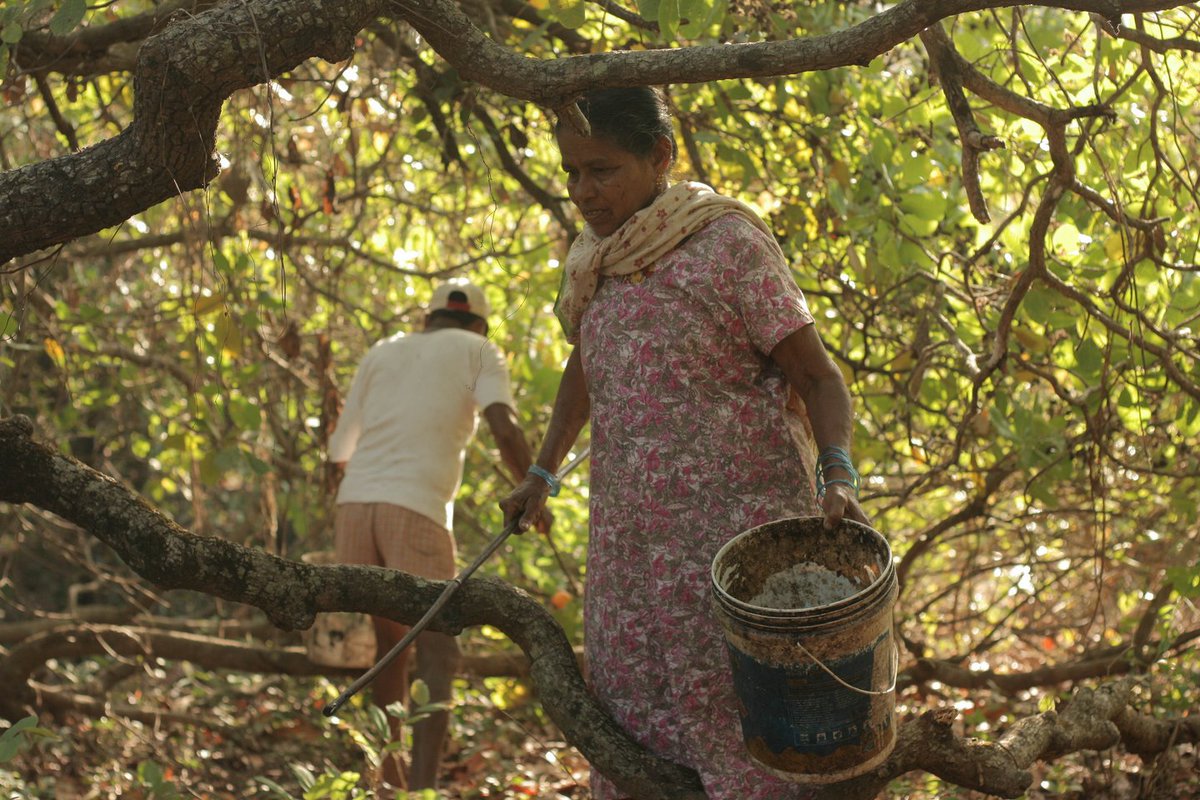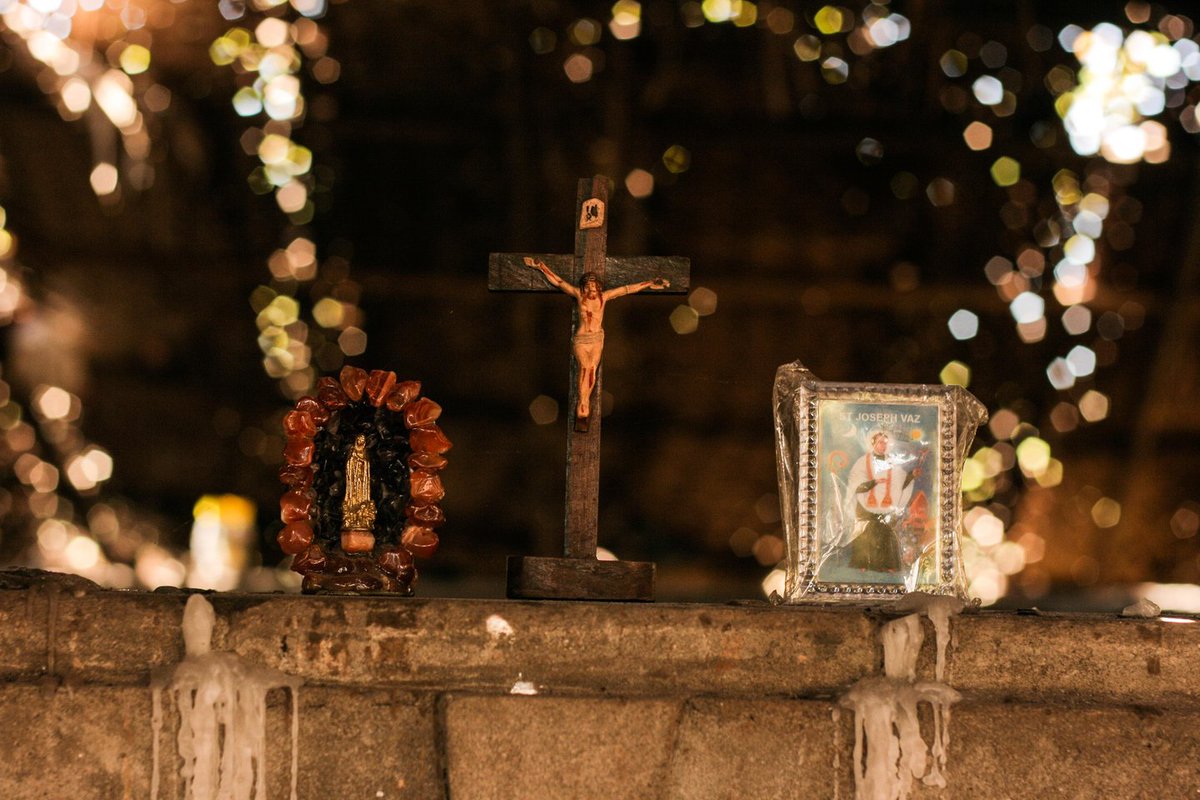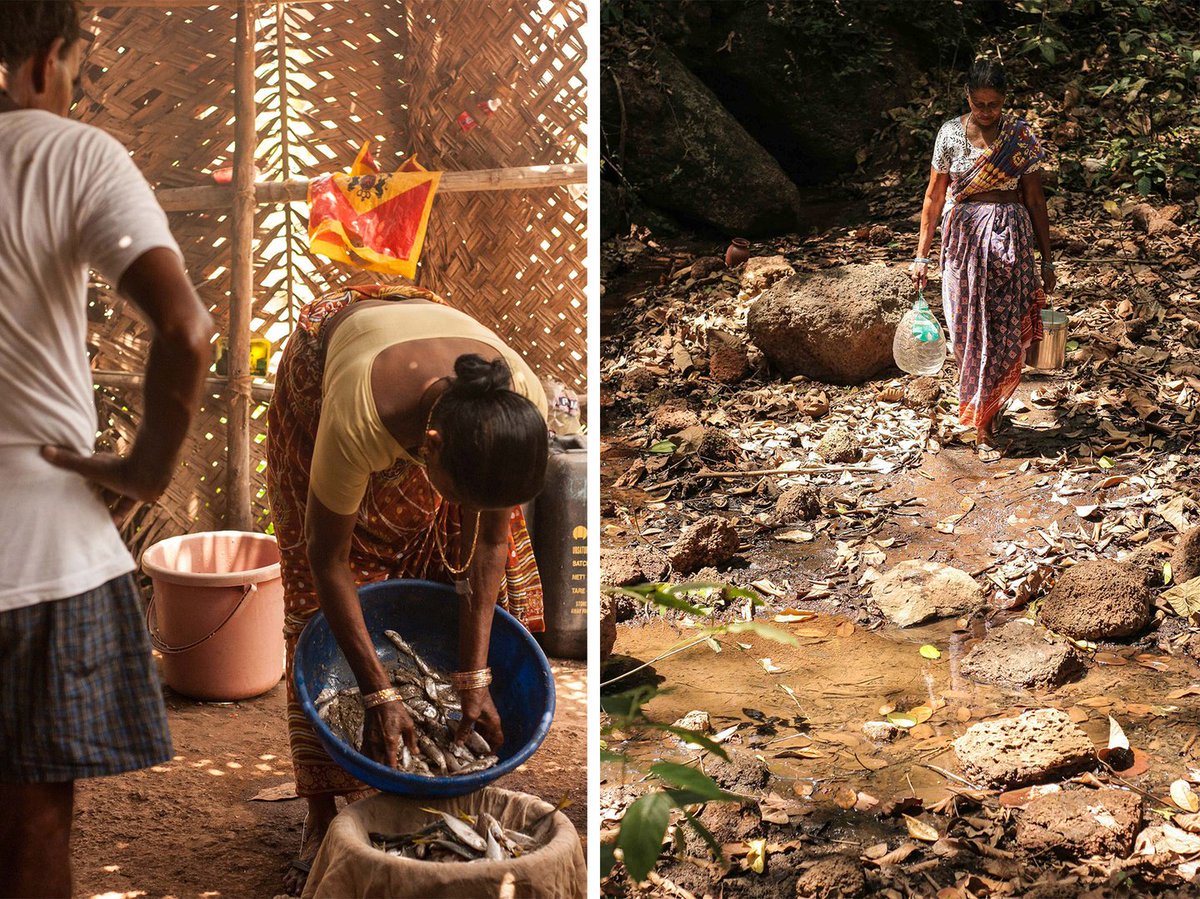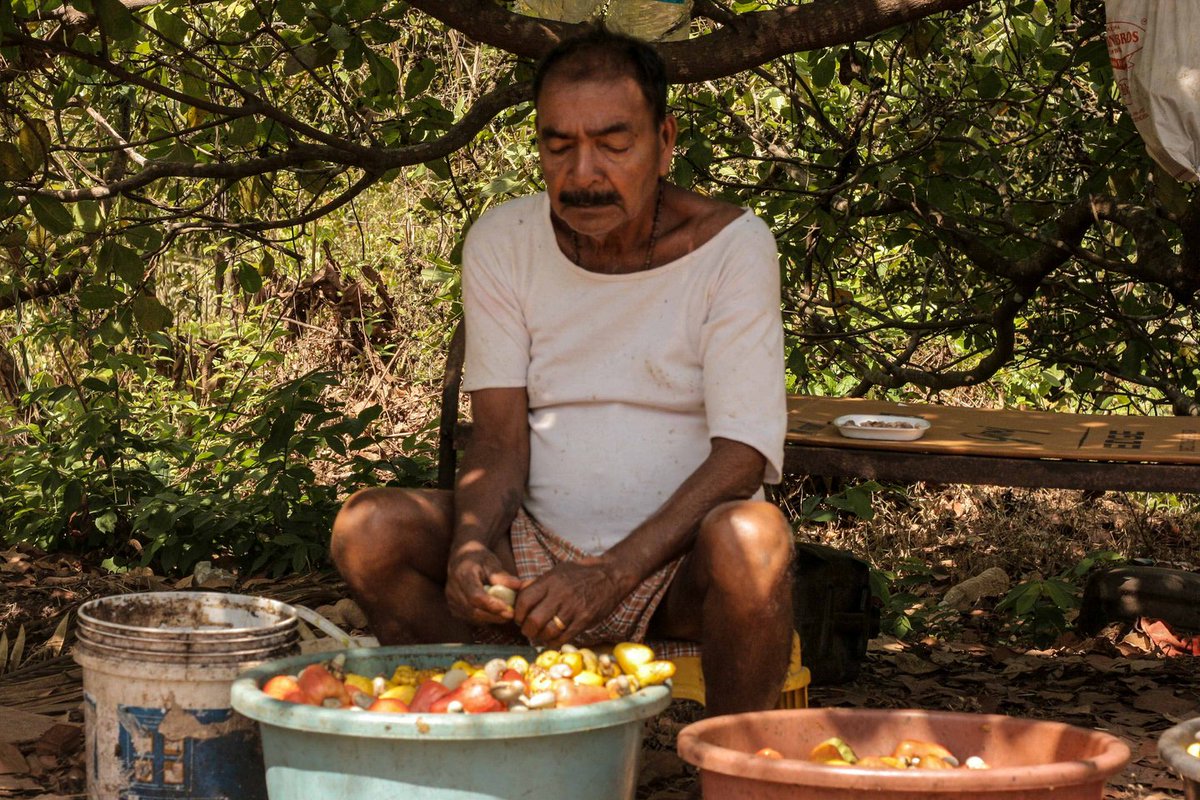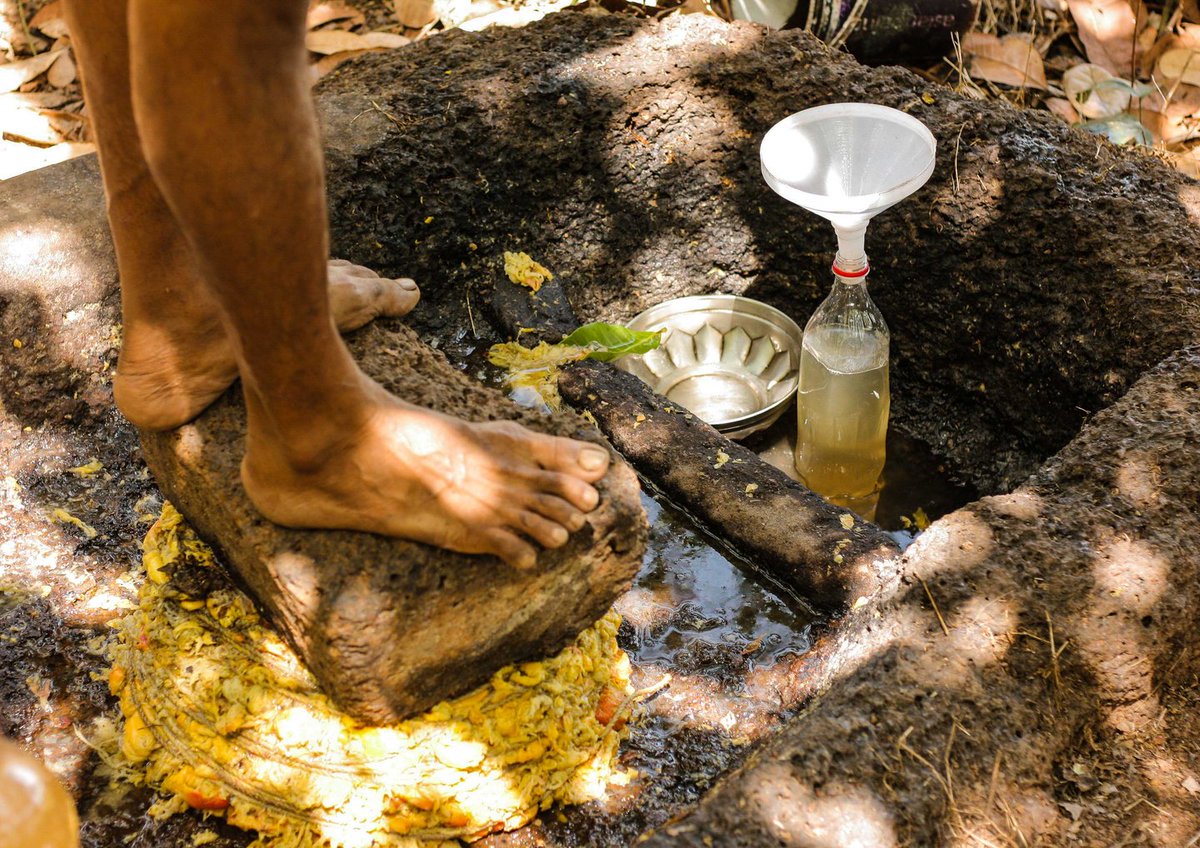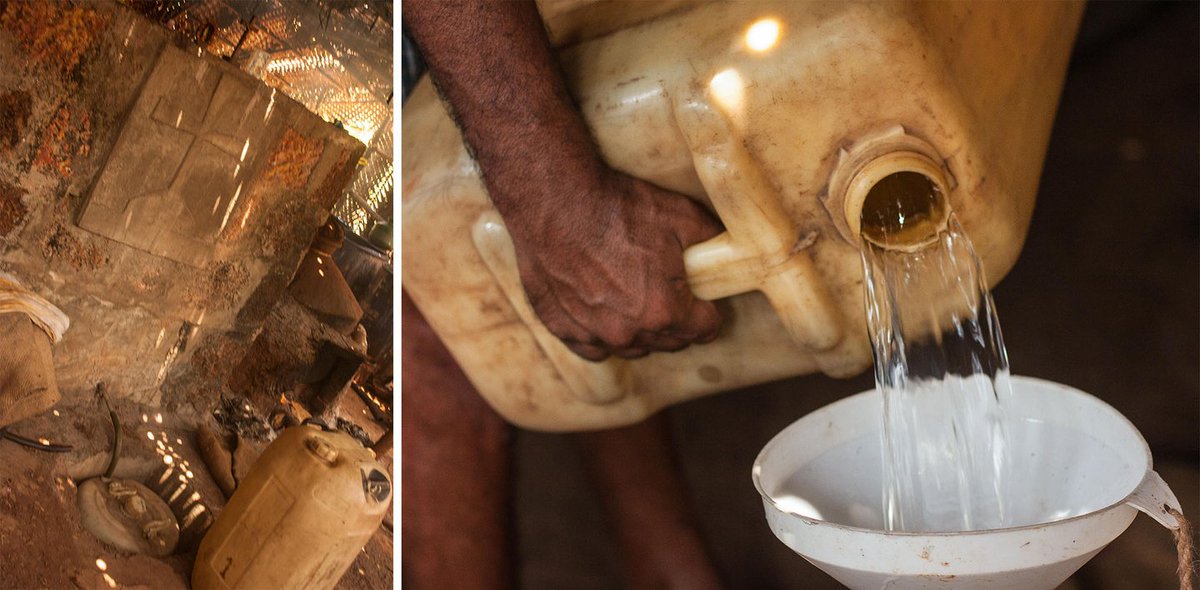(Photo thread)
In villages across Goa, the juice of the cashew apple is distilled to produce feni, which now has its own Geographical Indication. At their small family-run distillery in North Goa, Inacina and Luis Fernandes practice an art handed down to them across generations
In villages across Goa, the juice of the cashew apple is distilled to produce feni, which now has its own Geographical Indication. At their small family-run distillery in North Goa, Inacina and Luis Fernandes practice an art handed down to them across generations
Inacina Fernandes, 75, and Luis Fernandes, 77, are feni distillers from Harmal (Arambol) in Pernem taluka, North Goa. Their family has been running this business for three generations.
“We don’t pluck cashews from the tree,” Inacina says. “The sting of the sap is absent from fallen fruits and therefore best suited for the production of feni. ”
They begin collecting cashew apples early every morning from three separate plots of forestland.
They begin collecting cashew apples early every morning from three separate plots of forestland.
This thatched hut, around 2 kms from their home, is the family’s hub of feni-distilling activities. The hut is put together in December every year and dismantled by the end of May, before the monsoon. The family also sets up all the distilling machinery themselves.
The hut is a second home for Inacina and Luis. They live here for four months every year for ease of operations – from collecting the fruit to tending to the wood fire overnight.
The Fernandes’ are also traditional fisherfolk. From the end of the monsoon to January, their son - Bostiao goes on the boats. From January to May, fishing is handled by labourers they hire. They receive a daily share of fresh catch from the labourers during the feni season.
The morning’s collection: during peak crop output, Inacina and Luis go to the forest twice a day to gather fruit. “Many relatives and friends come by, but during high season we don’t have time to chat with anybody,” says Inacina.
The cashew seed is in high demand locally as well as for export. The nuts are sold to wholesalers in Goa at prices ranging from Rs. 110-160 per kilo. The high end of the price usually prevails in the beginning and at the end of the season, when supply is relatively low.
The first step in distilling feni is to extract juice from the fruit. This is traditionally done by stomping on the fruit. They have installed a crushing machine 3 years ago, but at the beginning of the season when the daily collections are modest, Bostiao prefers using his feet.
The second press produces the refreshing neero . It has a short life of about 12 hours, and is consumed by the family or distributed among friends.
The first press is stored in plastic barrels and left to ferment naturally for 48 hours. It is then poured into large earthen pots (though even copper pots are used nowadays) and kept over a slow fire overnight.
The Fernandes family does not sell the product to stores and taverns or to larger distillers. Inacina, Luis and Bostiao have a dedicated clientele of Goan families who stock up on their annual supply before the monsoon.
In a good year, they produce 1,000 litres of feni . It is sold for Rs. 1,200 for a kowso (an old way of measurement; one kowso is 20 bottles of approximately 750 ml each).
Full story by Sonia Filinto: https://ruralindiaonline.org/articles/arambols-first-family-of-feni/">https://ruralindiaonline.org/articles/...
Full story by Sonia Filinto: https://ruralindiaonline.org/articles/arambols-first-family-of-feni/">https://ruralindiaonline.org/articles/...

 Read on Twitter
Read on Twitter
